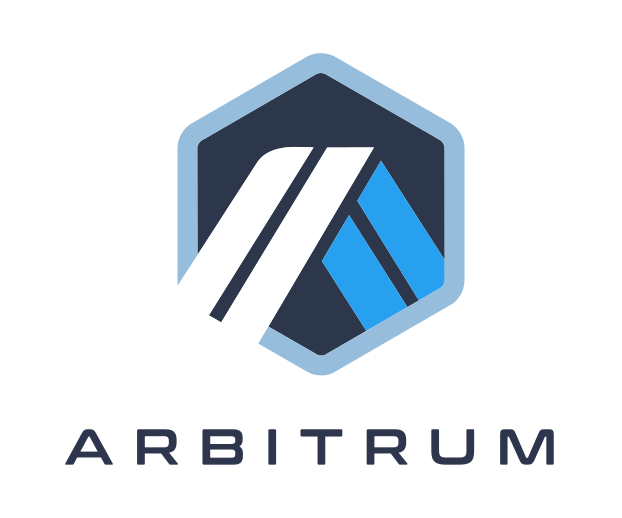TypeChain
Features ⚡
- static typing - you will never call not existing method again
- IDE support - works with any IDE supporting Typescript
- extendible - work with many different tools:
ethers.js,hardhat,truffle,Web3.jsor you can create your own target - frictionless - works with simple, JSON ABI files as well as with Truffle/Hardhat artifacts
Installation
npm install --save-dev typechainYou will also need to install a desired target for example @typechain/ethers-v4. Learn more about targets
Packages 📦
| Package | Version | Description | Examples |
|---|---|---|---|
typechain |
 |
Core package | - |
@typechain/ethers-v5 |
 |
Ethers ver 5 support ( |
example |
@typechain/ethers-v4 |
 |
Ethers ver 4 support | example |
@typechain/truffle-v5 |
 |
Truffle ver 5 support | example |
@typechain/web3-v1 |
 |
Web3 ver 1 support | example |
@typechain/hardhat |
 |
Hardhat plugin | example-ethers example-truffle |
@typechain/truffle-v4 |
 |
Truffle ver 4 support (deprecated) | example |
eth-sdk
TypeChain generates only TypeScript typings (d.ts) files, if you're looking for "opionated", "batteries included"
solution check out our new project: eth-sdk. It generates typesafe, ready to
use ethers.js wrappers and uses etherscan/sourcify to automatically get ABIs based only on smart contract addresses.
Under the hood, eth-sdk relies on TypeChain.
Usage
CLI
Note: If you use hardhat just use hardhat plugin.
typechain --target=(ethers-v4|ethers-v5|truffle-v4|truffle-v5|web3-v1|path-to-custom-target) [glob]
glob- pattern that will be used to find ABIs, remember about adding quotes:typechain "**/*.json", examples:./abis/**/*.abi,./abis/?(Oasis.abi|OasisHelper.abi).--target- ethers-v4, ethers-v5, truffle-v4, truffle-v5, web3-v1 or path to your custom target. Typechain will try to load package named:@typechain/${target}, so make sure that desired package is installed.--out-dir(optional) - put all generated files to a specific dir.--always-generate-overloads(optional) - some targets won't generate unnecessary types for overloaded functions by default, this option forces to always generate them
TypeChain always will rewrite existing files. You should not commit them. Read more in FAQ section.
Example:
typechain --target ethers-v5 --out-dir app/contracts './node_modules/neufund-contracts/build/contracts/*.json'
Videos
Getting started 📚
Motivation
Interacting with blockchain in Javascript is a pain. Developers need to remember not only a name of a given smart contract method or event but also it's full signature. This wastes time and might introduce bugs that will be triggered only in runtime. TypeChain solves these problems (as long as you use TypeScript).
How does it work?
TypeChain is a code generator - provide ABI file and name of your blockchain access library (ethers/truffle/web3.js) and you will get TypeScript typings compatible with a given library.
Step by step guide
Install TypeChain with yarn add --dev typechain and install desired target.
Run typechain --target=your_target (you might need to make sure that it's available in your path if you installed it
only locally), it will automatically find all .abi files in your project and generate Typescript classes based on
them. You can specify your glob pattern: typechain --target=your_target "**/*.abi.json". node_modules are always
ignored. We recommend git ignoring these generated files and making typechain part of your build process.
That's it! Now, you can simply import typings, check out our examples for more details.
Targets 🎯
Ethers.js v4 / v5
Use ethers-v5 target to generate wrappers for ethers.js lib. To make it
work great with Hardhat, use Hardhat plugin.
Truffle v4 / v5
Truffle target is great when you use truffle contracts already. Check out truffle-typechain-example for more details. It require installing typings for truffle library itself.
Now you can simply use your contracts as you did before and get full type safety, yay!
Web3 v1
Generates typings for contracts compatible with latest stable Web3.js version. Typings for library itself are now part
of the Web3 1.0.0 library so nothing additional is needed. For now it needs explicit cast as shown
here, this will be fixed
after improving official typings.
NatSpec support
If you provide solidity artifacts rather than plain ABIs as an input, TypeChain can generate NatSpec comments directly to your typings which enables simple access to docs while coding.
Your own target
This might be useful when you're creating a library for users of your smartcontract and you don't want to lock yourself into any API provided by Web3 access providing library. You can generate basically any code (even for different languages than TypeScript!) that based on smartcontract's ABI.
FAQ 🤔
Q: Should I commit generated files to my repository?
A: NO — we believe that no generated files should go to git repository. You should git ignore them and make
typechain run automatically for example in post install hook in package.json:
"postinstall":"typechain"
When you update ABI, just regenerate files with TypeChain and Typescript compiler will find any breaking changes for you.
Q: How do I customize generated code?
A: You can create your own target and generate basically any code.
Q: Generated files won't match current codestyle of my project :(
A: We will automatically format generated classes with prettier to match your coding preferences (just make sure to
use .prettierrc file).
Furthermore, TypeChain will silent eslint and tslint errors for generated files.
Usage as API
import { runTypeChain, glob } from 'typechain'
async function main() {
const cwd = process.cwd()
// find all files matching the glob
const allFiles = glob(cwd, [`${config.paths.artifacts}/!(build-info)/**/+([a-zA-Z0-9_]).json`])
const result = await runTypeChain({
cwd,
filesToProcess: allFiles,
allFiles,
outDir: 'out directory',
target: 'target name',
})
}
main().catch(console.error)If you don't care about incremental generation just specify the same set of files for filesToProcess and allFiles.
For incremental generation example read the source code of
hardhat plugin.
Contributing
Check out our contributing guidelines










